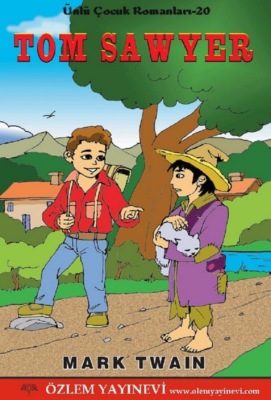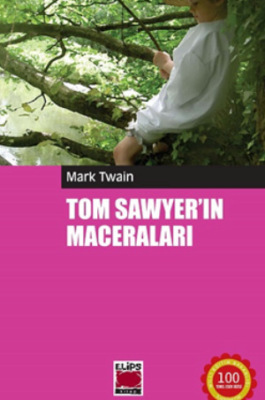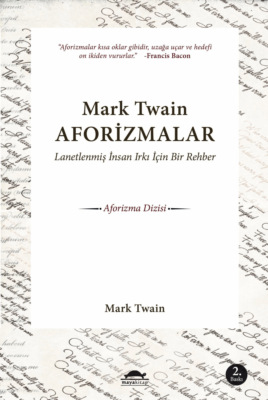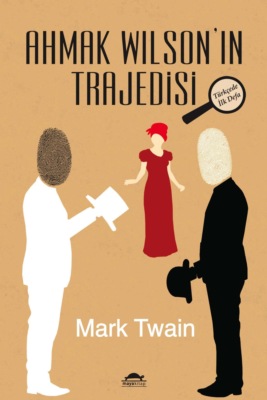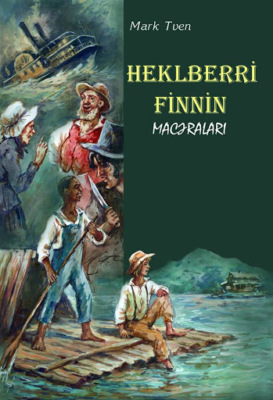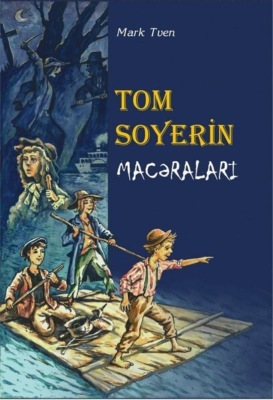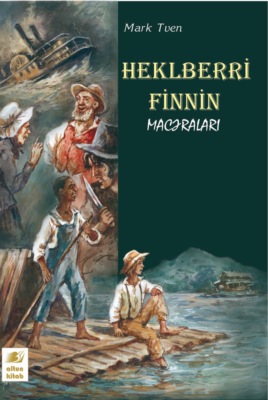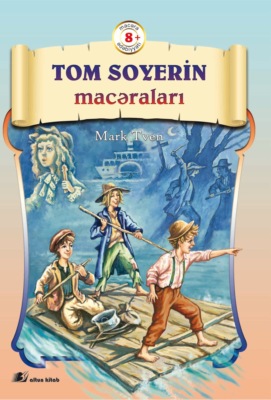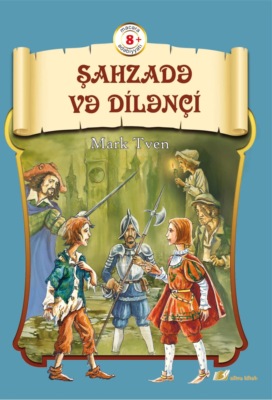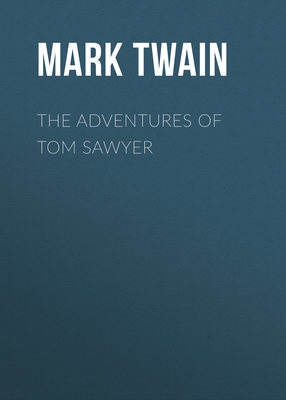Kitabı oku: «The Innocents Abroad - Volume 02»
Titel: The Innocents Abroad — Volume 02
von Oliver Goldsmith, Samuel Pepys, William Dean Howells, John Burroughs, William Harmon Norton, L. Mühlbach, Franklin Knight Lane, Walter Pater, Jonathan Swift, Augusta J. Evans, Trumbull White, Kathleen Thompson Norris, Matthew Arnold, Charles W. Colby, Shakespeare, James Fenimore Cooper, D. H. Lawrence, James Joyce, Ada Cambridge, Philip E. Muskett, Catherine Helen Spence, Rolf Boldrewood, Ernest Scott, Fergus Hume, H. G. Wells, Victor [pseud.] Appleton, Roald Amundsen, Max Simon Nordau, Henry David Thoreau, E. Phillips Oppenheim, Richard Wagner, Franz Liszt, Charlotte Mary Yonge, Charles Henry Eden, Charles Babbage, T. R. Malthus, Unknown, Joseph Ernest Morris, Robert Southey, Isabella L. Bird, Charles James Fox, Thomas Hariot, Cyrus Thomas, Bart Haley, Christopher Morley, Edgar Saltus, Marie Corelli, Edmund Lester Pearson, Robert Browning, John Aubrey, Benjamin Nathaniel Bogue, John McElroy, John Galsworthy, Henry James, Hamilton Wright Mabie, Mina Benson Hubbard, Elizabeth Cleghorn Gaskell, John Keble, Henry Lindlahr, Richard Henry Dana, Annie Wood Besant, Immanuel Kant, John Habberton, Baron Edward John Moreton Drax Plunkett Dunsany, T. B. Ray, Isabel Ecclestone Mackay, Frank C. Haddock, William John Locke, baron Arthur Léon Imbert de Saint-Amand, Ralph Centennius, United States, Library of Congress. Copyright Office, James Otis, George Hartmann, Sir Arthur Conan Doyle, George Gissing, John Henry Tilden, Thomas Wright, Frederick Samuel Dellenbaugh, Anonymous, J. Clontz, David Hume, Margot Asquith, Elmer Ulysses Hoenshel, Byron J. Rees, Lida B. McMurry, Georges Duhamel, Ramsay Muir, Edith Wharton, Charles Sturt, Lola Ridge, J. M. Stone, Annie Payson Call, Grant Allen, kniaz Petr Alekseevich Kropotkin, Steve Solomon, Isabel Moser, Aleksandr Sergeevich Pushkin, Horace W. C. Newte, Charles Darwin, Maurice Maeterlinck, Walter Bagehot, Henri Bergson, George Randolph Chester, John S. C. Abbott, L. Frank Baum, William T. Sherman, Philip Henry Sheridan, Friedrich Wilhelm Nietzsche, Ambrose Bierce, Ulysses S. Grant, F. Scott Fitzgerald, Alfred Lichtenstein, Abbot of Nogent-sous-Coucy Guibert, Nellie L. McClung, Alice Caldwell Hegan Rice, E. Nesbit, Henri Barbusse, J. M. Synge, Frank Norris, Louis Hémon, Henry Van Dyke, Thomas Guthrie Marquis, Susanna Moodie, Frank Bigelow Tarbell, René Descartes, Kirk Munroe, Francis Hopkinson Smith, Edna St. Vincent Millay, Talbot Mundy, George Meredith, Clemens Brentano, James De Mille, James Allen, Norman Douglas, Bolton Hall, Arthur Christopher Benson, James Oliver Curwood, Frank Jardine, Bertram Lenox Simpson, Freiherr von Justus Liebig, Cyril G. Hopkins, Mary Eleanor Wilkins Freeman, Evelyn Scott, Charles Monroe Sheldon, George Berkeley, Steven Sills, Sara Jeannette Duncan, Jules Verne, Irvin S. Cobb, Zane Grey, August von Kotzebue, John Addington Symonds, Marjorie Allen Seiffert, J. B. Bury, William Makepeace Thackeray, Jules Renard, Susan Coolidge, Huguette Bertrand, Mrs. C. F. Fraser, Ottilie A. Liljencrantz, William Morton Payne, Henry Adams, T. S. Arthur, Orison Swett Marden, T. S. Ackland, Anthony Trollope, graf Leo Tolstoy, Robert Smythe Hichens, Émile Gaboriau, Wilkie Collins, Charles Reade, Horace Walpole, Jennette Lee, Thomas Dykes Beasley, Inez Haynes Gillmore, L. H. Woolley, John Francis Davis, James B. Stetson, William Day Simonds, James O'Meara, Almira Bailey, Cuthbert Bede, Voltaire, Percy Bysshe Shelley, William Bennett Munro, Sir Richard Francis Burton, Horatio Alger, Paul Verlaine, Samuel Vaknin, William Ralph Inge, Madame de Staël, J. Hector St. John de Crèvecoeur, L. A. Abbott, F. Colburn Adams, John S. Adams, Thornton W. Burgess, Glenn D. Bradley, Eugen Neuhaus, Arthur E. Knights, Bret Harte, Maturin Murray Ballou, Jane G. Austin, Samuel Johnson, Frederick Niecks, Stephen Leacock, Suelette Dreyfus, Stéphane Mallarmé, Lyndon Orr, William Le Queux, Mary Wollstonecraft Shelley, Jeannie Gunn, Jean François Regnard, John Ruskin, A. I. Kuprin, Pierre Louÿs, George Barr McCutcheon, John Munro, Holman Day, William Stearns Davis, John Richardson, Mary Jane Holmes, Oliver Wendell Holmes, Finley Peter Dunne, C. J. Dennis, Ethel Sybil Turner, Julius Wellhausen, Arnold Bennett, Harold Bell Wright, Guðmundur Kamban, Charles Stuart Calverley, A. E. W. Mason, Charles Rivière Dufresny, David Starr Jordan, Wallace Irwin, J. W. Wright, Thomas Hardy, United States Rubber Company, Helen Reimensnyder Martin, William Fayette Fox, Lewis Carroll, Anna Katharine Green, Shell Union Oil Corporation, Louisa May Alcott, Theocritus, of Phlossa near Smyrna Bion, Moschus, Bertrand Russell, Guy de Maupassant, Henrik Ibsen, James Whitcomb Riley, Josephine Lawrence, Pierre Loti, Harry Alverson Franck, Albert Payson Terhune, Harold MacGrath, G. A. Henty, Harriet A. Adams, John Lothrop Motley, H. E. Bird, Joseph Crosby Lincoln, Michel Baron, Gene Stratton-Porter, James Clerk Maxwell, Norman Lindsay, Edward Lasker, Margaret Penrose, S. R. Crockett, Austin Hall, Homer Eon Flint, Various, Clarence Edward Mulford, Upton Sinclair, John Andreas Widtsoe, Thomas Bulfinch, David Graham Phillips, John Kendrick Bangs, Edmond Jaloux, Emile Littré, 13th cent. de Boron Robert, Samuel Butler, James Huneker, Jessie Graham [pseud.] Flower, St. George Rathborne, Charles Wesley Emerson, Winston Churchill, Edith Bancroft, Lloyd Osbourne, Jack London, Lyman Abbott, Belle K. Abbott, Sinclair Lewis, H. W. Conn, Ludwig Thoma, Sir Walter Scott, August Strindberg, Thomas Chapais, Ernest Giles, David Wynford Carnegie, Zoeth Skinner Eldredge, Eusebius Joseph Molera, C. C. Andrews, Robert Barr, John Hendricks Bechtel, Robert W. Chambers, Alice B. Emerson, Anna M. Galbraith, Laura Lee Hope, L. T. Meade, Harry Steele Morrison, Frank Gee Patchin, Louise Clarke Pyrnelle, William MacLeod Raine, Roy Rockwood, Edward Stratemeyer, Louis Tracy, Matthew White, Leonardo da Vinci, Albert Einstein, Clarence Young, Ludwig Leichhardt, Arthur B. Reeve, Mrs. Georgie Sheldon, Samuel Hopkins Adams, George Washington, John Adams, Thomas Jefferson, James Madison, James Monroe, John Quincy Adams, Andrew Jackson, Martin Van Buren, John Tyler, James K. Polk, Zachary Taylor, Millard Fillmore, Franklin Pierce, James Buchanan, Abraham Lincoln, Andrew Johnson, Rutherford Birchard Hayes, Chester Alan Arthur, Grover Cleveland, Benjamin Harrison, William McKinley, Theodore Roosevelt, William H. Taft, Woodrow Wilson, Warren G. Harding, Calvin Coolidge, Herbert Hoover, Franklin Delano Roosevelt, Harry S. Truman, Dwight D. Eisenhower, John F. Kennedy, Lyndon B. Johnson, Richard M. Nixon, Gerald R. Ford, Jimmy Carter, Ronald Reagan, George Bush, William Jefferson Clinton, George W. Bush, United States. Presidents., Bjørnstjerne Bjørnson, Rex Ellingwood Beach, Euripides, Henry C. Northam, Mary Raymond Shipman Andrews, Alice Brown, Mary Stewart Doubleday Cutting, Elizabeth Garver Jordan, Elizabeth Stuart Phelps, Mary Heaton Vorse, Edith Wyatt, Bernard Shaw, Georg Büchner, Mrs. Alfred Gatty, Henry Mackenzie, Thomas Henry Huxley, Leonard Huxley, William Hazlitt, Arthur William Dunn, Baroness Emmuska Orczy Orczy, Standish O'Grady, J. M. Barrie, J. G Patterson, Alexandre Dumas père, Alphonse Daudet, Ignatius Donnelly, Henry A. Shute, Walter Savage Landor, E. J. Banfield, George Sand, Gustave Flaubert, William James, Charles Klein, J. Storer Clouston, John Fox, John Stuart Mill, Laurence Hope, Andrew Lang, Vaughan Kester, Molière, Baron George Gordon Byron Byron, Viscount Henry St. John Bolingbroke, Ben Jonson, Émile Zola, Thomas Stevens, Carl Ewald, Anatole France, Edward J. Wickson, Henry M. Stanley, Nicolas Boileau Despréaux, Selma Lagerlöf, Richard Marsh, W. B. Yeats, Ella Wheeler Wilcox, Henry Stevens, Gouverneur Morris, Kaiten Nukariya, Henry Rider Haggard, Frances Boyd Calhoun, George Crabbe, Bertram Waldrom Matz, Joseph A. Altsheler, Petronius Arbiter, F. Marion Crawford, Charles James Lever, John Payne, Harlan Page Halsey, Karl Philipp Moritz, Henry Cruse Murphy, Vingie E. Roe, Mabel C. Hawley, Walter Cox Green, Henry Fielding, Jeffery Farnol, Laura Elizabeth Howe Richards, Howard Roger Garis, Lilian Garis, Carolyn Wells, G. K. Chesterton, Mungo Park, Theodore Dreiser, Arthur Cheney Train, Edward Payson Roe, Robert Louis Stevenson, Asa Gray, Jean de La Fontaine, Frances Hodgson Burnett, Mary Noailles Murfree, Wolfgang Amadeus Mozart, J. S. Fletcher, Elinor Glyn, Jacob Grimm, Wilhelm Grimm, Kenneth Grahame, Wassily Kandinsky, Theodor Fontane, S. Baring-Gould, Johann Wolfgang von Goethe, E. Cherubini, Brett Page, Dom, John Oxley, William F. Drannan, Mark Rutherford, Adelbert von Chamisso, L. M. Montgomery, Edward John Eyre, Dorothy Canfield Fisher, F. H. King, Justin McCarthy, Myrtle Reed, Francis Grose, W. H. Hudson, Andrew Kennedy Hutchison Boyd, Count Anthony Hamilton, Horace, John Brown, Katherine Cecil Thurston, Victor Hugo, Henry Sweet, Robert Hillyer, Amy Brooks, Jean-Jacques Rousseau, Brillat-Savarin, Thomas Bailey Aldrich, Henry Wadsworth Longfellow, Grace M. Remick, Georg Ebers, Francis Bacon, Juliana Horatia Gatty Ewing, Ralph Victor, Sir Francis Darwin, Heinrich Heine, Thomas Sherlock, William Ferneley Allen, Henry Harland, Khalil Gibran, Lady Florence Henrietta Fisher Darwin, Sir William Petty, Juliet Helena Lumbard James, Max Pearson Cushing, Marion Harland, Edward Francis Adams, E. Pauline Johnson, John Drinkwater, James Edward Talmage, Margaret Sidney, William Allen White, Gertrude Page, Michel de Montaigne, Alleyne Ireland, Charles E. Morris, Martinovitsné Kutas Ilona, Ernst Lehrs, Richard Harding Davis, Robert Seymour, Anna Bonus Kingsford, Edmund Burke, Lightheart, Brother of the Resurrection Lawrence, Joseph Conrad, Lucia Prudence Hall Woodbury, Virginia Woolf, Ellis Wynne, Eustace Hale Ball, A. A. Milne, George MacDonald, Arthur Herbert Leahy, W. E. B. Du Bois, Nathaniel H. Bishop, Charles Kingsley, Mark Twain
ISBN 978-3-7429-5522-7
Alle Rechte vorbehalten.
Es ist ohne vorherige schriftliche Erlaubnis nicht gestattet, dieses Werk im Ganzen oder in Teilen zu vervielfältigen oder zu veröffentlichen.
THE INNOCENTS ABROAD, Part 2
THE INNOCENTS ABROAD
Part 2, Chapters 11 to 20
by Mark Twain
../Images/cover.jpg (186K)
[Cover and Spine from the 1884 Edition]
frontpiece1.jpg (77K)
frontpiece2.jpg (82K)
THE INNOCENTS ABROAD
by Mark Twain
[From an 1869—1st Edition]
titlepage.jpg (44K)
dedication.jpg (11K)
CONTENTS
LIST OF ILLUSTRATIONS
CHAPTER XI.
Getting used to it—No Soap—Bill of Fare, Table d'hote—"An American Sir"—A Curious Discovery—The "Pilgrim" Bird—Strange Companionship—A Grave of the Living—A Long Captivity—Some of Dumas' Heroes—Dungeon of the Famous "Iron Mask."
CHAPTER XII.
A Holiday Flight through France—Summer Garb of the Landscape—Abroad on the Great Plains—Peculiarities of French Cars—French Politeness American Railway Officials—"Twenty Mnutes to Dinner!"—Why there are no Accidents—The "Old Travellers"—Still on the Wing—Paris at Last——French Order and Quiet—Place of the Bastile—Seeing the Sights—A Barbarous Atrocity—Absurd Billiards
CHAPTER XIII.
More Trouble—Monsieur Billfinger—Re-Christening the Frenchman—In the Clutches of a Paris Guide—The International Exposition—Fine Military Review—Glimpse of the Emperor Napoleon and the Sultan of Turkey
CHAPTER XIV.
The Venerable Cathedral of Notre-Dame—Jean Sanspeur's Addition—Treasures and Sacred Relics—The Legend of the Cross—The Morgue—The Outrageious 'Can-Can'—Blondin Aflame—The Louvre Palace—The Great Park—Showy Pageantry—Preservation of Noted Things
CHAPTER XV.
French National Burying—Ground—Among the Great Dead—The Shrine of Disappointed Love—The Story of Abelard and Heloise—"English Spoken Here"—"American Drinks Compounded Here"—Imperial Honors to an American—The Over-estimated Grisette—Departure from Paris—A Deliberate Opinion Concerning the Comeliness of American Women
CHAPTER XVI.
Versailles—Paradise Regained—A Wonderful Park—Paradise Lost—Napoleonic Strategy
CHAPTER XVII.
War—The American Forces Victorious—" Home Again"—Italy in Sight The "City of Palaces"—Beauty of the Genoese Women—The "Stub-Hunters"—Among the Palaces—Gifted Guide—Church Magnificence—"Women not Admitted"—How the Genoese Live—Massive Architecture—A Scrap of Ancient History—Graves for 60,000
CHAPTER XVIII.
Flying Through Italy—Marengo—First Glimpse of the Famous Cathedral—Description of some of its Wonders—A Horror Carved in Stone——An Unpleasant Adventure—A Good Man—A Sermon from the Tomb—Tons of Gold and Silver—Some More Holy Relics—Solomon's Temple
CHAPTER XIX
"Do You Wiz zo Haut can be?"—La Scala—Petrarch and Laura—Lucrezia Borgia—Ingenious Frescoes—Ancient Roman Amphitheatre—A Clever Delusion—Distressing Billiards—The Chief Charm of European Life—An Italian Bath—Wanted: Soap—Crippled French—Mutilated English—The Most Celebrated Painting in the World—Amateur Raptures—Uninspired Critics—Anecdote—A Wonderful Echo—A Kiss for a Franc
CHAPTER XX.
Rural Italy by Rail—Fumigated, According to Law—The Sorrowing Englishman—Night by the Lake of Como—The Famous Lake—Its Scenery—Como compared with Tahoe—Meeting a Shipmate
LIST OF ILLUSTRATIONS
| 1. THE QUAKER CITY IN A STORM—FRONTPIECE 2. ILLUMINATED TITLE-PAGE-THE PILGRIM'S VISION 27. RINGING FOR SOAP 28. "WINE, SIR!" 29. THE PILGRIM 30. THE PRISONER 31. HOMELESS FRANCE 32. RAILROAD OFFICIAL IN FRANCE 33. "FIVE MINUTES FOR REFRESHMENTS"—AMERICA 34. "THIRTY MINUTES FOR DINNER"—FRANCE 35. THE OLD TRAVELLER 36. A DECIDED SHAVE 37. A GAS-TLY SUBSTITUTE 38. THE THREE GUIDES 39. "ZE SILK MAGAZIN" 40. RETURN IN WAR PAINT 41. NAPOLEON III 42. ABDUL AZIZ 43. THE MORGUE 44. WE TOOK A WALK 45. THE CAN-CAN 46. GRAVES OF ABELARD AND HELOISE 47. A PAIR OF CANONS OF 13TH CENTURY 48. THE PRIVATE MARRIAGE 49. AMERICAN DRINKS 50. ROYAL HONORS TO A YANKEE 51. THE GRISETTE 52. FOUNTAIN AT VERSAILLES 53. WOMEN OF GENOA 54. PETRIFIED LACKEY 55. PRIEST AND FRIAR 56. STATUE OF COLUMBUS 57. GRAVES OF SIXTY THOUSAND 58. ROOF AND SPIRES OF CATHEDRAL AT MILAN 59. CENTRAL DOOR OF CATHEDRAL AT MILAN 60. INTERIOR OF CATHEDRAL AT MILAN 61. BOYHOOD EXPERIENCE 62. TREASURES OF THE CATHEDRAL 63. CATHEDRAL AT MILAN 64. LA SCALA THEATRE 65. COPYING FROM OLD MASTERS 66. FACIAL EXPRESSION 67. TILE ECHO 68. NOTE BOOK 69. A KISS FOR A FRANC 70. THE FUMIGATION 71. LAKE COMO 72. GARDEN, LAKE COMO |
CHAPTER XI.
We are getting foreignized rapidly and with facility. We are getting reconciled to halls and bedchambers with unhomelike stone floors and no carpets—floors that ring to the tread of one's heels with a sharpness that is death to sentimental musing. We are getting used to tidy, noiseless waiters, who glide hither and thither, and hover about your back and your elbows like butterflies, quick to comprehend orders, quick to fill them; thankful for a gratuity without regard to the amount; and always polite—never otherwise than polite. That is the strangest curiosity yet—a really polite hotel waiter who isn't an idiot. We are getting used to driving right into the central court of the hotel, in the midst of a fragrant circle of vines and flowers, and in the midst also of parties of gentlemen sitting quietly reading the paper and smoking. We are getting used to ice frozen by artificial process in ordinary bottles—the only kind of ice they have here. We are getting used to all these things, but we are not getting used to carrying our own soap. We are sufficiently civilized to carry our own combs and toothbrushes, but this thing of having to ring for soap every time we wash is new to us and not pleasant at all. We think of it just after we get our heads and faces thoroughly wet or just when we think we have been in the bathtub long enough, and then, of course, an annoying delay follows. These Marseillaises make Marseillaise hymns and Marseilles vests and Marseilles soap for all the world, but they never sing their hymns or wear their vests or wash with their soap themselves.
p099.jpg (23K)
We have learned to go through the lingering routine of the table d'hote with patience, with serenity, with satisfaction. We take soup, then wait a few minutes for the fish; a few minutes more and the plates are changed, and the roast beef comes; another change and we take peas; change again and take lentils; change and take snail patties (I prefer grasshoppers); change and take roast chicken and salad; then strawberry pie and ice cream; then green figs, pears, oranges, green almonds, etc.; finally coffee. Wine with every course, of course, being in France. With such a cargo on board, digestion is a slow process, and we must sit long in the cool chambers and smoke—and read French newspapers, which have a strange fashion of telling a perfectly straight story till you get to the "nub" of it, and then a word drops in that no man can translate, and that story is ruined. An embankment fell on some Frenchmen yesterday, and the papers are full of it today—but whether those sufferers were killed, or crippled, or bruised, or only scared is more than I can possibly make out, and yet I would just give anything to know.
We were troubled a little at dinner today by the conduct of an American, who talked very loudly and coarsely and laughed boisterously where all others were so quiet and well behaved. He ordered wine with a royal flourish and said:
"I never dine without wine, sir" (which was a pitiful falsehood), and looked around upon the company to bask in the admiration he expected to find in their faces. All these airs in a land where they would as soon expect to leave the soup out of the bill of fare as the wine!—in a land where wine is nearly as common among all ranks as water! This fellow said: "I am a free-born sovereign, sir, an American, sir, and I want everybody to know it!" He did not mention that he was a lineal descendant of Balaam's ass, but everybody knew that without his telling it.
p100.jpg (11K)
We have driven in the Prado—that superb avenue bordered with patrician mansions and noble shade trees—and have visited the chateau Boarely and its curious museum. They showed us a miniature cemetery there—a copy of the first graveyard that was ever in Marseilles, no doubt. The delicate little skeletons were lying in broken vaults and had their household gods and kitchen utensils with them. The original of this cemetery was dug up in the principal street of the city a few years ago. It had remained there, only twelve feet underground, for a matter of twenty-five hundred years or thereabouts. Romulus was here before he built Rome, and thought something of founding a city on this spot, but gave up the idea. He may have been personally acquainted with some of these Phoenicians whose skeletons we have been examining.
In the great Zoological Gardens we found specimens of all the animals the world produces, I think, including a dromedary, a monkey ornamented with tufts of brilliant blue and carmine hair—a very gorgeous monkey he was—a hippopotamus from the Nile, and a sort of tall, long-legged bird with a beak like a powder horn and close-fitting wings like the tails of a dress coat. This fellow stood up with his eyes shut and his shoulders stooped forward a little, and looked as if he had his hands under his coat tails. Such tranquil stupidity, such supernatural gravity, such self-righteousness, and such ineffable self-complacency as were in the countenance and attitude of that gray-bodied, dark-winged, bald-headed, and preposterously uncomely bird! He was so ungainly, so pimply about the head, so scaly about the legs, yet so serene, so unspeakably satisfied! He was the most comical-looking creature that can be imagined.
p101.jpg (15K)
It was good to hear Dan and the doctor laugh—such natural and such enjoyable laughter had not been heard among our excursionists since our ship sailed away from America. This bird was a godsend to us, and I should be an ingrate if I forgot to make honorable mention of him in these pages. Ours was a pleasure excursion; therefore we stayed with that bird an hour and made the most of him. We stirred him up occasionally, but he only unclosed an eye and slowly closed it again, abating no jot of his stately piety of demeanor or his tremendous seriousness. He only seemed to say, "Defile not Heaven's anointed with unsanctified hands." We did not know his name, and so we called him "The Pilgrim." Dan said:
"All he wants now is a Plymouth Collection."
The boon companion of the colossal elephant was a common cat! This cat had a fashion of climbing up the elephant's hind legs and roosting on his back. She would sit up there, with her paws curved under her breast, and sleep in the sun half the afternoon. It used to annoy the elephant at first, and he would reach up and take her down, but she would go aft and climb up again. She persisted until she finally conquered the elephant's prejudices, and now they are inseparable friends. The cat plays about her comrade's forefeet or his trunk often, until dogs approach, and then she goes aloft out of danger. The elephant has annihilated several dogs lately that pressed his companion too closely.
We hired a sailboat and a guide and made an excursion to one of the small islands in the harbor to visit the Castle d'If. This ancient fortress has a melancholy history. It has been used as a prison for political offenders for two or three hundred years, and its dungeon walls are scarred with the rudely carved names of many and many a captive who fretted his life away here and left no record of himself but these sad epitaphs wrought with his own hands. How thick the names were! And their long-departed owners seemed to throng the gloomy cells and corridors with their phantom shapes. We loitered through dungeon after dungeon, away down into the living rock below the level of the sea, it seemed. Names everywhere!—some plebeian, some noble, some even princely. Plebeian, prince, and noble had one solicitude in common—they would not be forgotten! They could suffer solitude, inactivity, and the horrors of a silence that no sound ever disturbed, but they could not bear the thought of being utterly forgotten by the world. Hence the carved names. In one cell, where a little light penetrated, a man had lived twenty-seven years without seeing the face of a human being—lived in filth and wretchedness, with no companionship but his own thoughts, and they were sorrowful enough and hopeless enough, no doubt. Whatever his jailers considered that he needed was conveyed to his cell by night through a wicket.
This man carved the walls of his prison house from floor to roof with all manner of figures of men and animals grouped in intricate designs. He had toiled there year after year, at his self-appointed task, while infants grew to boyhood—to vigorous youth—idled through school and college—acquired a profession—claimed man's mature estate—married and looked back to infancy as to a thing of some vague, ancient time, almost. But who shall tell how many ages it seemed to this prisoner? With the one, time flew sometimes; with the other, never—it crawled always. To the one, nights spent in dancing had seemed made of minutes instead of hours; to the other, those selfsame nights had been like all other nights of dungeon life and seemed made of slow, dragging weeks instead of hours and minutes.
p103.jpg (56K)
One prisoner of fifteen years had scratched verses upon his walls, and brief prose sentences—brief, but full of pathos. These spoke not of himself and his hard estate, but only of the shrine where his spirit fled the prison to worship—of home and the idols that were templed there. He never lived to see them.
The walls of these dungeons are as thick as some bed-chambers at home are wide—fifteen feet. We saw the damp, dismal cells in which two of Dumas' heroes passed their confinement—heroes of "Monte Cristo." It was here that the brave Abbe wrote a book with his own blood, with a pen made of a piece of iron hoop, and by the light of a lamp made out of shreds of cloth soaked in grease obtained from his food; and then dug through the thick wall with some trifling instrument which he wrought himself out of a stray piece of iron or table cutlery and freed Dantes from his chains. It was a pity that so many weeks of dreary labor should have come to naught at last.
They showed us the noisome cell where the celebrated "Iron Mask"—that ill-starred brother of a hardhearted king of France—was confined for a season before he was sent to hide the strange mystery of his life from the curious in the dungeons of Ste. Marguerite. The place had a far greater interest for us than it could have had if we had known beyond all question who the Iron Mask was, and what his history had been, and why this most unusual punishment had been meted out to him. Mystery! That was the charm. That speechless tongue, those prisoned features, that heart so freighted with unspoken troubles, and that breast so oppressed with its piteous secret had been here. These dank walls had known the man whose dolorous story is a sealed book forever! There was fascination in the spot.
Ücretsiz ön izlemeyi tamamladınız.

